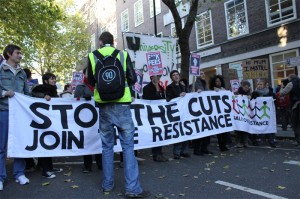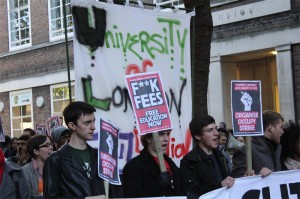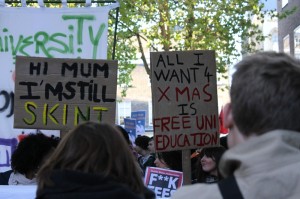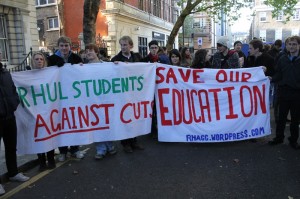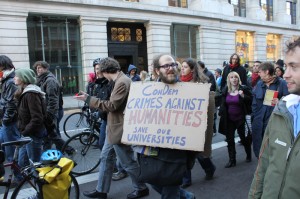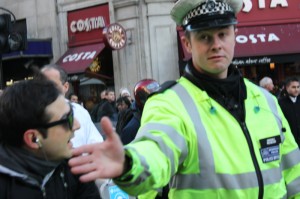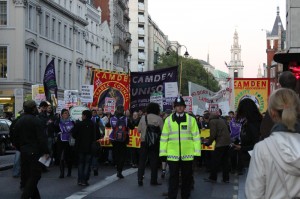Thousands of students, trade unionists, community groups and others marched through the streets of London in protest following the brutal spending cuts issued by the Tory government yesterday.
Students from University College London and surrounding universities initiated the march on their campus and were soon joined by thousands of others united in the cause. Banners on display reflected the diversity of those protesting, including unions such as Unison, the National Union of Teachers and the GMB. The procession passed through Central London and ended up at a rally outside Downing Street. Simultaneously thousands of demonstrators were also gathered at a rally at Lincoln’s Inn Fields where Tony Benn, as well as other trade union and movement leaders addressed thousands of angered protesters. The Lincoln’s Inn Fields protesters later marched towards Downing Street.
Local protests were also organised around the UK; a clear indicator of the public’s outrage at the proposed rebudgeting of the country’s coffers.
To read related articles go to our blog and to IndyMedia.
Spectacle homepage
Befriend Spectacle.Docs on Facebook
Follow SpectacleMedia on Twitter

